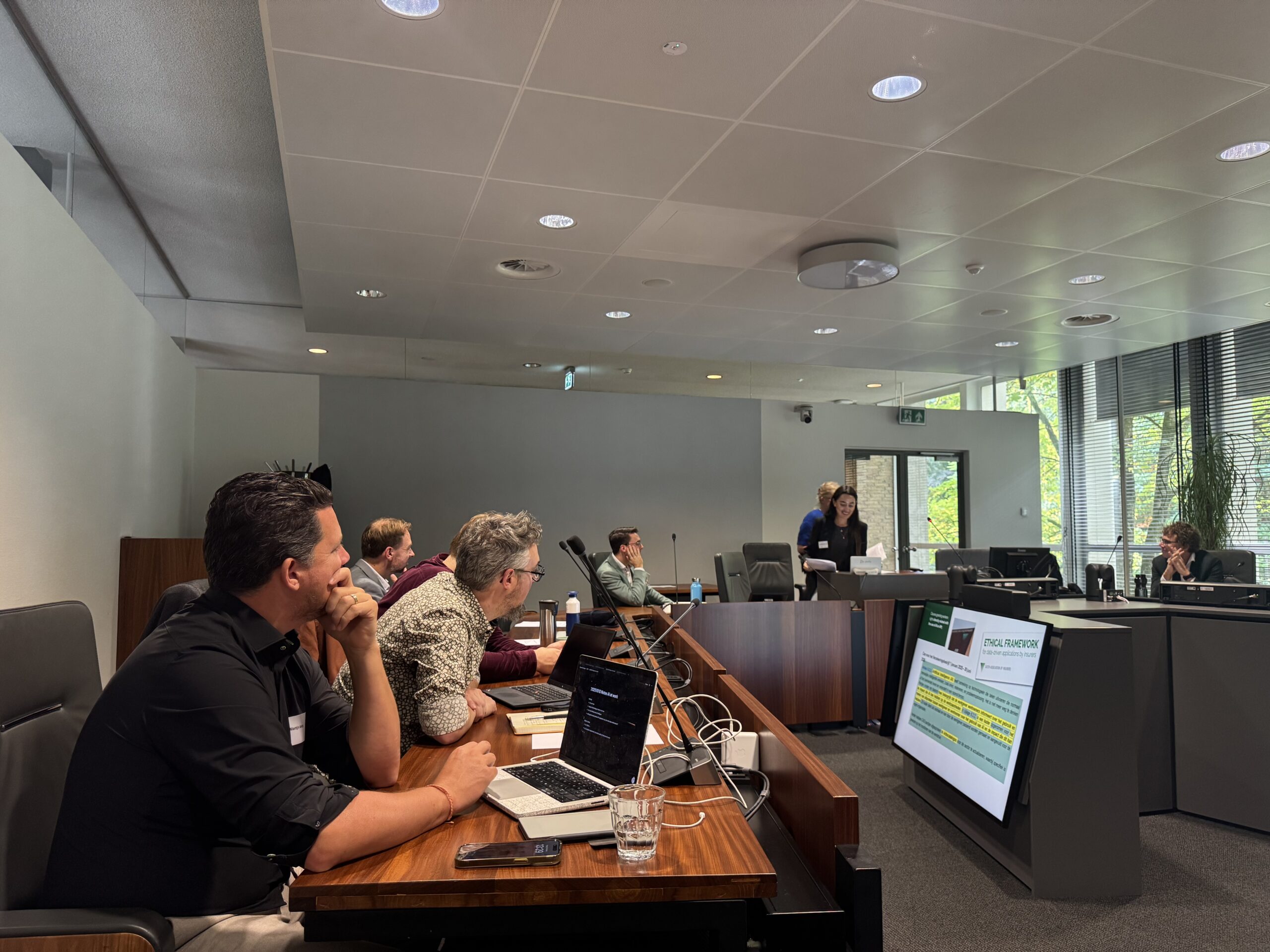Last week, I had the opportunity to contribute to a seminar organised by the International Society for Labour and Social Security Law in collaboration with the Levenbach Institute. The theme was “The role of social partners in the use of AI at work”. Following contributions about experiences in the Netherlands, Belgium and Europe, I was asked to conclude with some reflections and to lead a workshop. Here are a few takeaways and thoughts:
- The impact of technology on labour is not new; we can learn a lot (as previous speakers mentioned) by looking at past experiences.
- AI and work is often not about replacement, but about the quality of – and access to – work and a growing asymmetry of power between employers/clients and workers.
- Social partners fill the gap between regulation and society, but I wonder whether the pressure becomes too high when enforcement is lacking, and the question is what skills social partners lack in order to be an equal partner in the debate;
- At the same time, social partners can really make a difference by including agreements on AI (I know: a very broad concept) in collective agreements. The only disadvantage of this is that 1) collective agreements usually apply to employees, while 46% of the working population worldwide is not employed, 2) collective agreements are often (especially when viewed globally) not public, which means that unions and sectors cannot learn from each other effectively, and 3) if you look at worker protests in the gig economy (= the testing ground for AI and labour), grassroots movements are by far the largest organisers, not trade unions.
- In discussions about labour law, preference is often given to employee status, while in many cases this will result in working with subcontractors and temporary employment agencies. Yet another company taking a slice of the pie, and you know where the bill will end up. I still miss a broader discussion about the value and appreciation of work.
- We really need to think about contract-neutral regulations and protection. See, for example, this paper on the European Platform Work Directive.
- Discussions about AI and work tend to focus on those who use AI or where AI is applied, but not on the workers and the work in the AI supply chain.
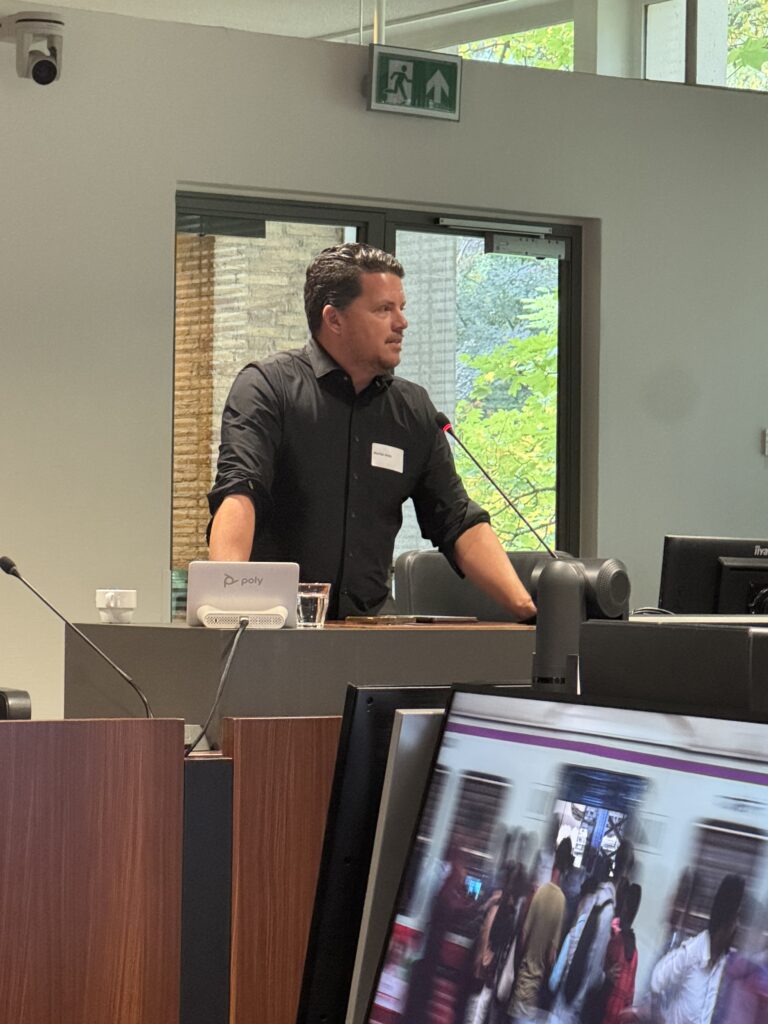
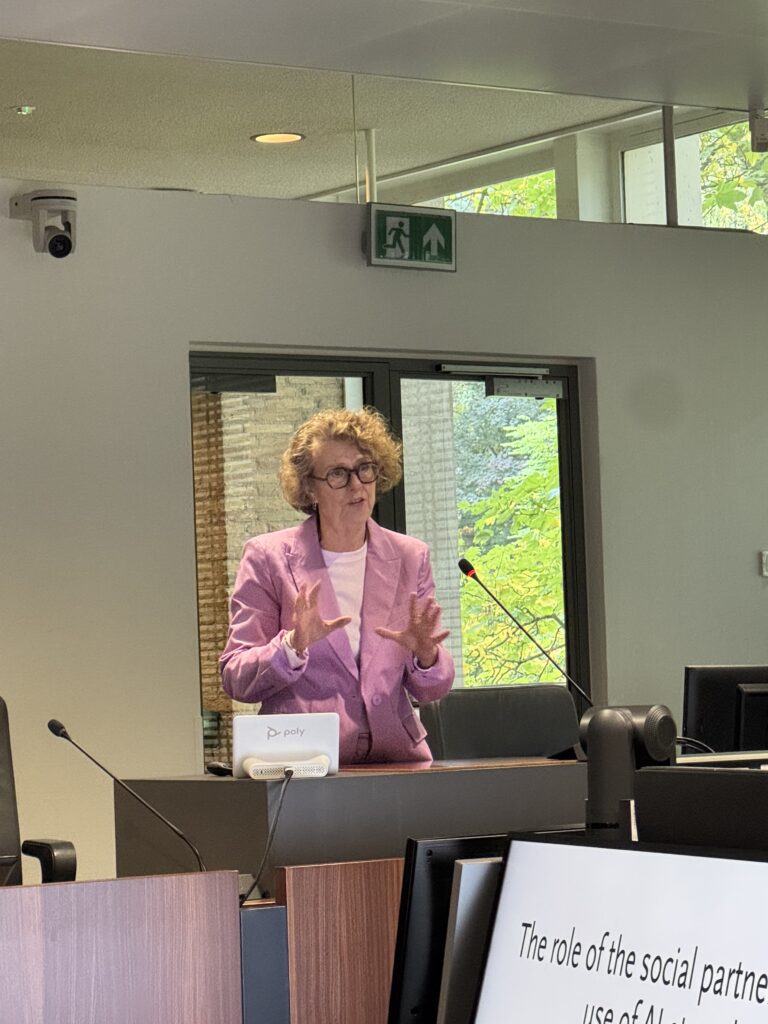
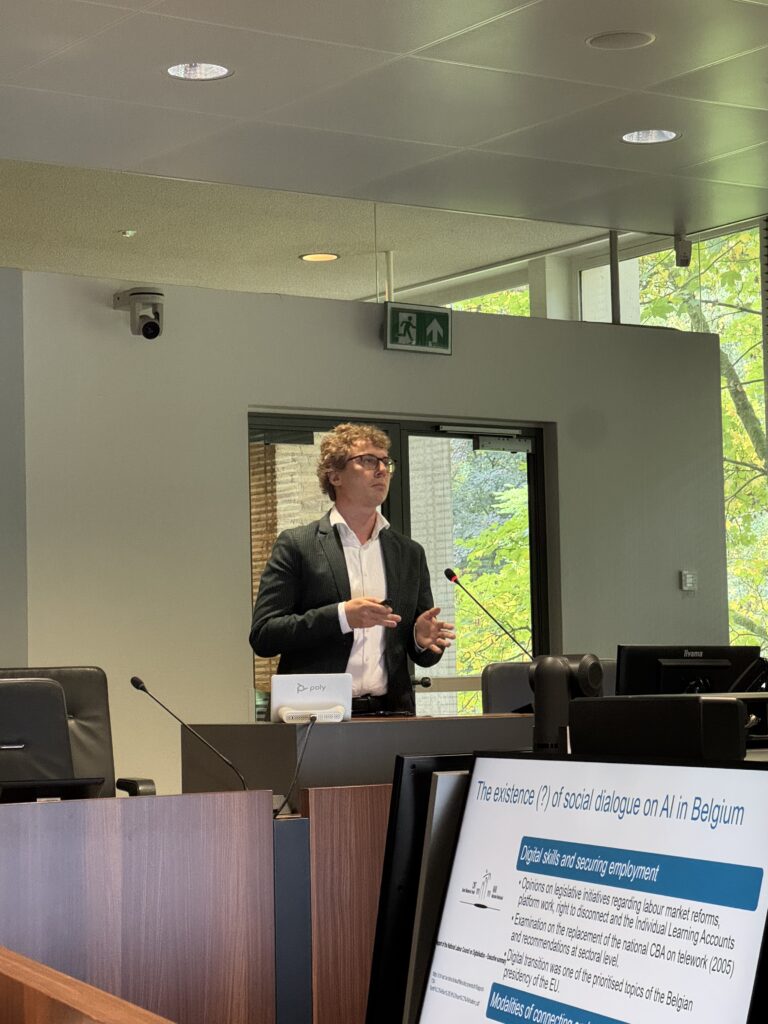
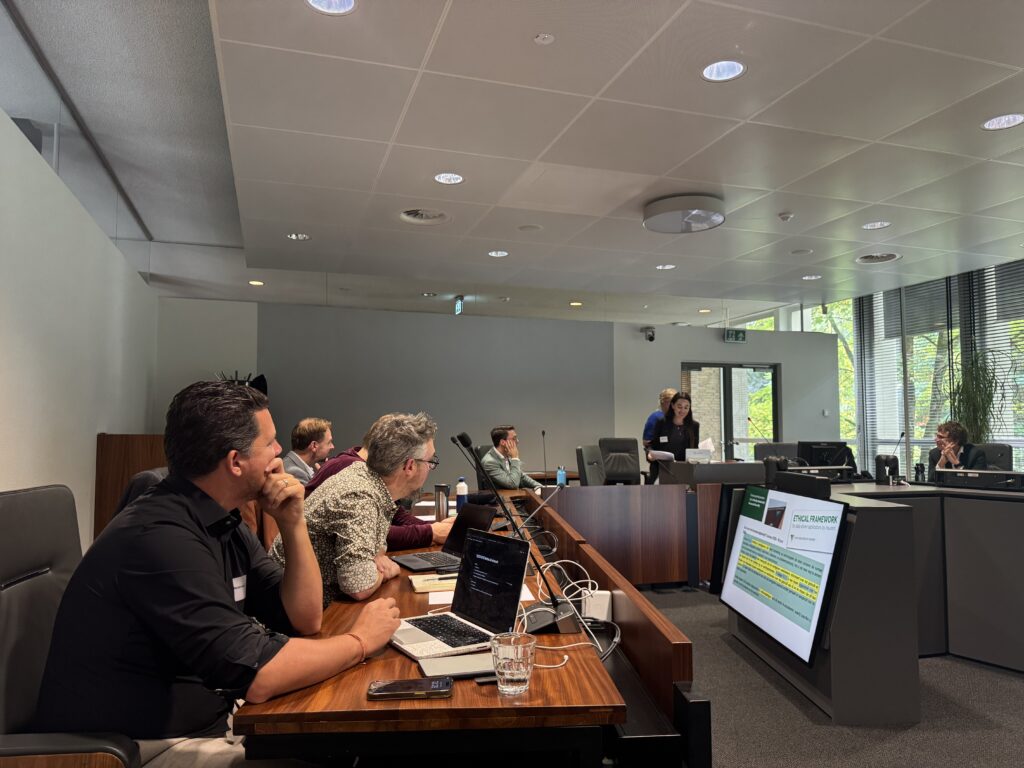
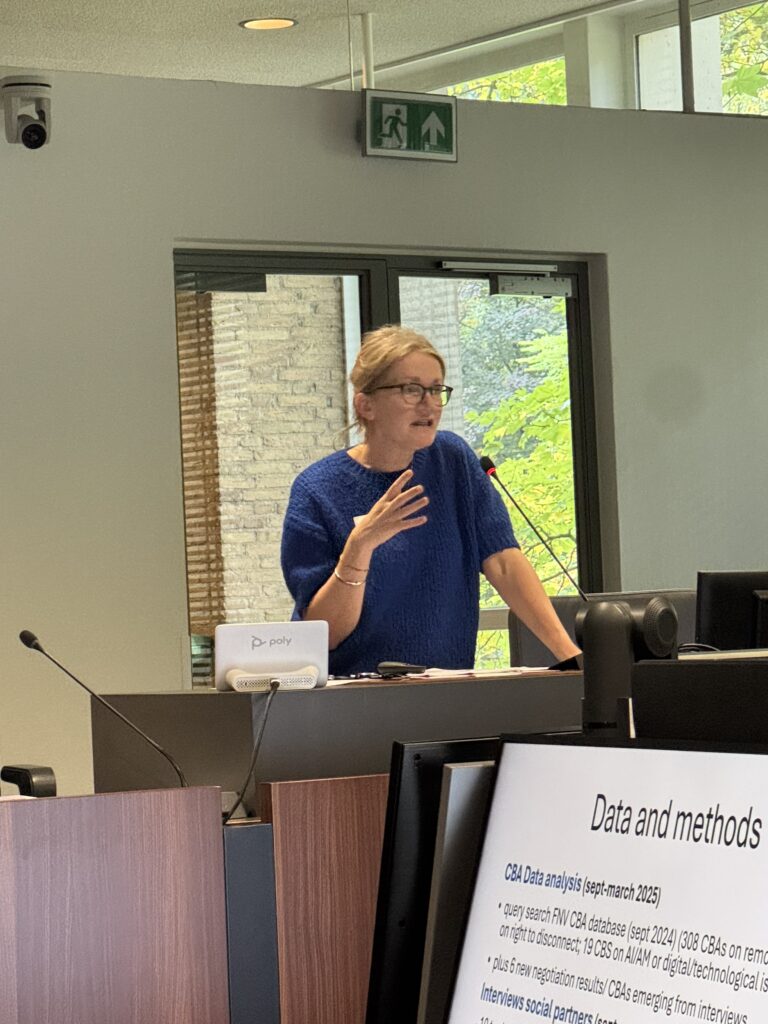
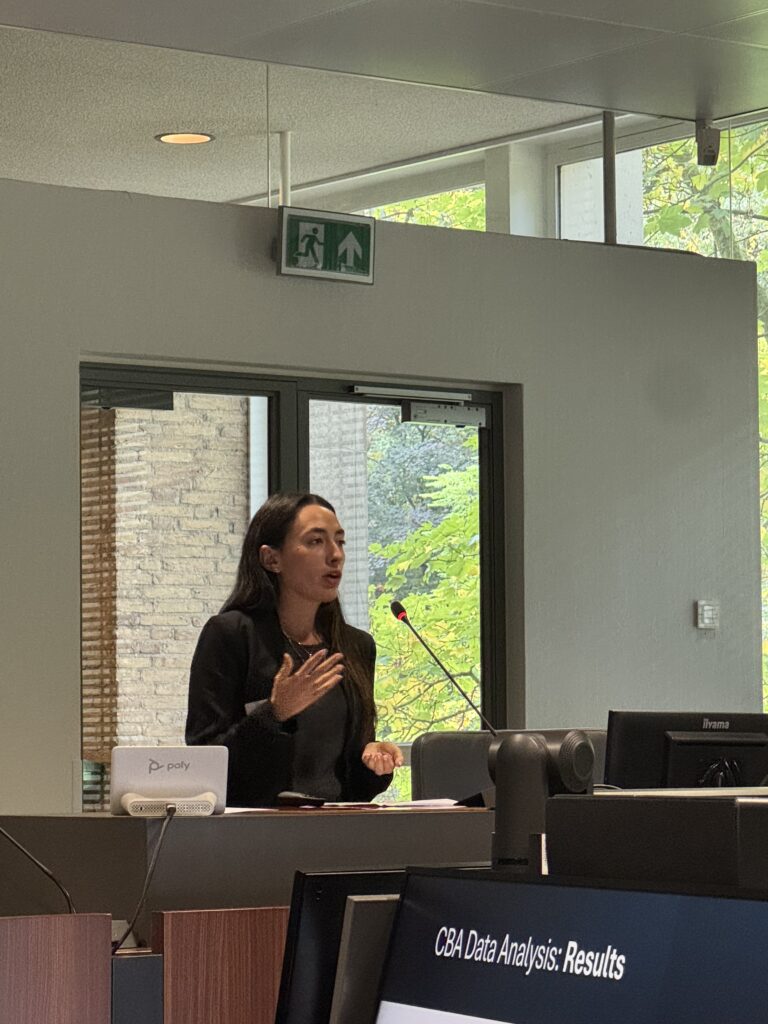
After my introduction and reflection, the attendees divided into groups to discuss the following four issues I had brought up:
- Which stakeholder is responsible for setting up and managing a data wallet for workers: the GigCV case study.
- How can the cooperative model leverage power in the topic of work and AI for workers?
- How can we create a tariff floor for self-employed workers?
- How can social partners safeguard the rights of workers in the AI supply chain in a global labour market?
All in all, it was an interesting session to attend and contribute to, and it is always great to learn more from other disciplines. Thank you to Miriam Kullmann and Matthijs van Schadewijk for the invitation and organisation, and to Mijke Houwerzijl, Juliana Londono, Simon Taes and Klara Boonstra for your inspiring presentations.
